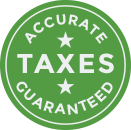April 8, 2025
To make your first estimated tax payment by April 15th, follow these steps: Calculate Your Estimated Tax Liability Estimate Your Income: Project your income for the year, including wages, dividends, interest, and any other sources. Deductions and Credits: Estimate your deductions and credits to reduce your taxable income. Tax Rate: Apply the appropriate tax rate…
April 8, 2025
[Church Name] [Church Address] [City, State, ZIP Code] [Date] [Donor Name] [Donor Address] [City, State, ZIP Code] Dear [Donor Name], On behalf of [Church Name], I would like to extend our heartfelt gratitude for your generous donation of stock. Your support is invaluable to our mission and helps us continue our work in the community….
April 8, 2025
Handling the donation of stock for a church involves several important steps to ensure compliance, proper valuation, and acknowledgment. Here’s a comprehensive guide: Establish a Brokerage Account Open an Account: The church must establish a brokerage account in its name to receive and manage stock donations. Choose a Broker: Consider using a discount broker (e.g.,…
April 1, 2025
If the looming April 15 tax deadline has you stressed, take a deep breath—you have time and options. Every year, many clergy rush to file by the deadline, often missing key deductions, making costly errors, or settling for a hurried filing experience. However, here’s the truth: filing a tax extension can be a strategic advantage,…
March 29, 2025
Tithing, the practice of donating a portion of one’s income to a religious organization, is a common tradition in many faiths. While tithing fulfills spiritual obligations, it also has potential tax implications that can be beneficial for taxpayers. Here’s a detailed look at how tithing affects taxable income: Eligibility for Deduction Tithing can be tax-deductible…
March 29, 2025
Consulting a tax professional can be highly beneficial for pastors due to the unique and complex nature of clergy taxes. Here are some detailed reasons why pastors should consider seeking professional tax advice: Understanding Clergy-Specific Tax Rules: Dual Tax Status: Pastors often have a dual tax status, being treated as employees for federal income tax…
March 21, 2025
When a church provides a health care allowance to its pastor, the tax implications can vary based on how the allowance is structured. Here’s a detailed explanation: Direct Payments to the Pastor: If the church pays a health care allowance directly to the pastor to cover individual health insurance premiums or medical expenses, these amount…
March 20, 2025
Crafting compensation packages for church pastors is a process distinctly different from setting salaries and benefits in the for-profit sector. What is Social Security Allowance? A Social Security allowance is an additional payment made by churches to clergy to help cover their Social Security tax burden. This allowance is often referred to as a SECA…
March 20, 2025
There are specific guidelines for churches when renting out their parking lots. Here are some key points to consider: Purpose and Use: The rental activity should not interfere with the church’s primary mission and activities. It should be clear that the rental is for a purpose that does not conflict with the church’s exempt status….
March 19, 2025
Filing a tax extension is a straightforward process that gives you until October 15th to submit your tax return. Here are the steps to follow: Choose Your Method You can file an extension in three main ways: Online Payment: Pay any estimated tax due online and select the option to file for an extension. This…






